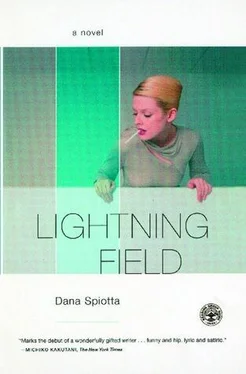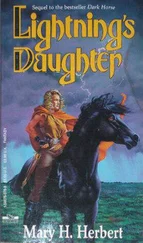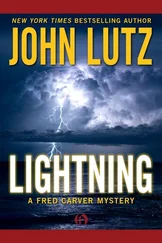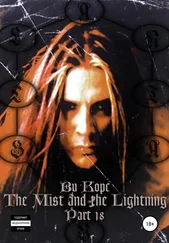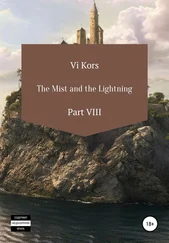Scott’s face looked so shocked, so deeply unprepared. She spoke and as she spoke, she watched the words register on his face. She sounded dumb and mean. Not like a movie, not witty. But she had been so careful, so scrupulous. She had, hadn’t she?
The compartments were breaking down.
Lisa scrubbed potatoes and carrots. She ran water over them as she scrubbed until they revealed tender bright colors, which would turn dull and gray after a long boiling. She soaked lettuce in bowls of water — raw vegetables made her nervous. She peeled and scrubbed and soaked and rinsed. It took hours. Mark hated how overboiled the vegetables came out. He was wrong, though, it had to be done. He didn’t realize how delicate they were, how tiny children’s bodies are, how vulnerable they all were. She made a meat sauce because Mark wanted meat. But the ground beef — she pressed it in the frying pan at a high temperature. The fat sizzled and popped at her wrists as she pressed down on the meat, separated the clumps. Pink was dangerous, she cooked it on high heat until it was nearly black and stunk of frying pan and burnt fat. She made sure every hidden thing in it was dead. Stracc -something, staph infection. E. Coli, with a number — so many strains of things they required numbers — triple digits. No, more— E. Coli 0157:H7. That was the superbad virulent supertoxic one. Six digits and with colons and letters, too. Then in with the cooked-out tomatoes, until everything tasted the same — safe. She felt like a cave woman, killing her food in the microbe hunting ground for the good of her family.
Mark hated her cooking.
But what could she do? Listeria and Trichinella and antibiotic-resistant superbacteria. Alex and Alisa set the table. They reached up to place plates. She had made the meat sauce for Mark, but Mark wouldn’t be home. Mark hadn’t been home in two days. They began to eat quietly, in his absence, drinking distilled water as Mark’s beer sat in the refrigerator. The food was not tasteless; it tasted like Teflon and burnt toast. It tasted like a textural lumpy mess. The kids didn’t want it. Lisa yelled at them to eat. They had to eat their vegetables. She made them cry. Mark would not be back, she knew. She could make him, force him back with guilt and pleading, but how long would it last? And how much more living could they do with someone who didn’t want to be there, someone feeling trapped. One had to choose; there wasn’t enough in her for Mark and for Alex and Alisa. Alex was screaming at her, he hated this dinner. She felt in her son’s voice the fear of change, and heard how much she was to blame. Alisa sobbed, making girlish audible gulps for air. Lisa started crying and got out the peanut butter and saltines. I’m sorry, she said. I’m sorry, here. And the three of them ate the crackers and the peanut butter.
“We’ll have ice cream and chocolate sauce for dessert,” Lisa said. “OK?” The children nodded and ate, red-faced. Lisa forced in the horrible food, putting pats of butter and fingerfuls of salt on it. She also ate the peanut butter and the crackers. She ate the ice cream with the chocolate sauce too, already seeing the end of it as she ate, already wondering what consolation was offered after ice cream. Her stomach felt uncomfortably large. It was so constantly full these days that she couldn’t hold it in at all. Her muscles a distant memory under her fat, and it made her sad and hungry and tired. It felt permanent.It surrounded her, her body, weighed her down, but still she ate. Mark had to leave, and what could she do now? She would have to go to her mother’s, be at the door with nothing but her children and her hunger. She could stay here only with Mark’s support — there was no way she could make it without his money. They cleaned up the kitchen together, the children trying to dry the dishes with quiet, obedient faces. She had let them down, she was frightened. She let herself become unlovable, fat and ugly and messy, and because of this they had no father. They watched TV, and while the children couldn’t see, she cried to herself. They ate the expensive store-bought cookies, and she wept. She was not crying about losing the apartment. She was crying now because she would not have Mark’s arms around her in her bed, that she had lost that, too.
David wanted to take Gwen to the Getty Museum. He wanted to show her something marble and anciently solid. He wanted to look at her as she moved through the world. But Gwen wanted to confine their explorations to her bed. She grew strict with him without saying anything. Her containment was apparent to David in the smallest unspoken moments, a code he read and contemplated in his solitude at home, staring at his computer screen. He picked up a photograph on her mantel. Gwen’s daughter, fat like Gwen, but sad and apologetic.
“What’s your daughter’s name?” he asked. She smiled halfway. A long pause.
“Come here,” she said, as if giving up something valuable. He knew he should shut up and he did. He trusted her completely. She could undo him, not from across a room, but within body-heat distance. Or on the telephone. When he first spoke to her, she called him after reading one of his scripts. Itwas her job, not an extraordinary gesture in itself, but the minute he heard her voice, he felt she would help him somehow. When he first saw her, she seemed unappealing to him. He thought she looked uncomfortable in clothing, pulling at her sweater, burdened by largeness. But he liked her. She was both kind and commanding in her critiques of his work. She had confidence in her opinions. David felt relieved of things when he was near her. They often met at her West Los Angeles home. They would sit under a sun umbrella by a large and elaborate sycamore tree. One particular afternoon, no different-seeming from any of the others they had spent together, she moved out of the shade and into the sun. She undressed to complete nakedness and stepped into the shallow end of the pool. She was soft, fleshy, white. He watched as she waded in, moving slowly, graceful in the weighted way that some large women are. She waded out, approached him glistening with water. Her breasts seemed enormous to him, pendulous, but the skin perfect, perfectly white, the nipples pink and wet. She kissed him, that first time, and she was sweet-tasting, liquid, light.
She did not want to talk about the daughter or the husband. She was content in her life. But she wanted David, and it was not something he questioned, he wanted her back. She made him forget about movies. She made him think about women in paintings — a glossy book from college of elaborate, solid women. Or of carved, still women that didn’t change when shadows overtook light and then back again. Women who inhabited one place in the world as you moved around them. He explored her curves, her Bernini twists and endless thighs. He kissed her dimpled spine, felt her muscular and soft flesh that gave when pressed, that didn’t resist. He moved on top of her, his front toher back. He liked the way her neck smelled. This he was unused to, she was more than him, anchored and fecund on the bed. Things became elaborate in the way things that excluded everything else usually do. They became overly elaborated, from baroque to rococo. She had silky scarves, blindfolds. He was on the bed — she tied his hands to the bedposts. She covered his eyes. He felt liberated by trust. Things touched him. Intricate salty flesh on his mouth. He felt with his tongue — layers and depths, textures and tastes, folds of woman skin. He lay there and licked lightly with his tongue, not pursuing anything but what came next. He explored what she gave him, and wouldn’t mind if the scarves were tighter, if he were held fast. He swallowed and felt her licking him and stopping. She would continue, he knew, absolutely, and he longed for more. The world became silent and solid flesh, a trustworthy place.
Читать дальше
